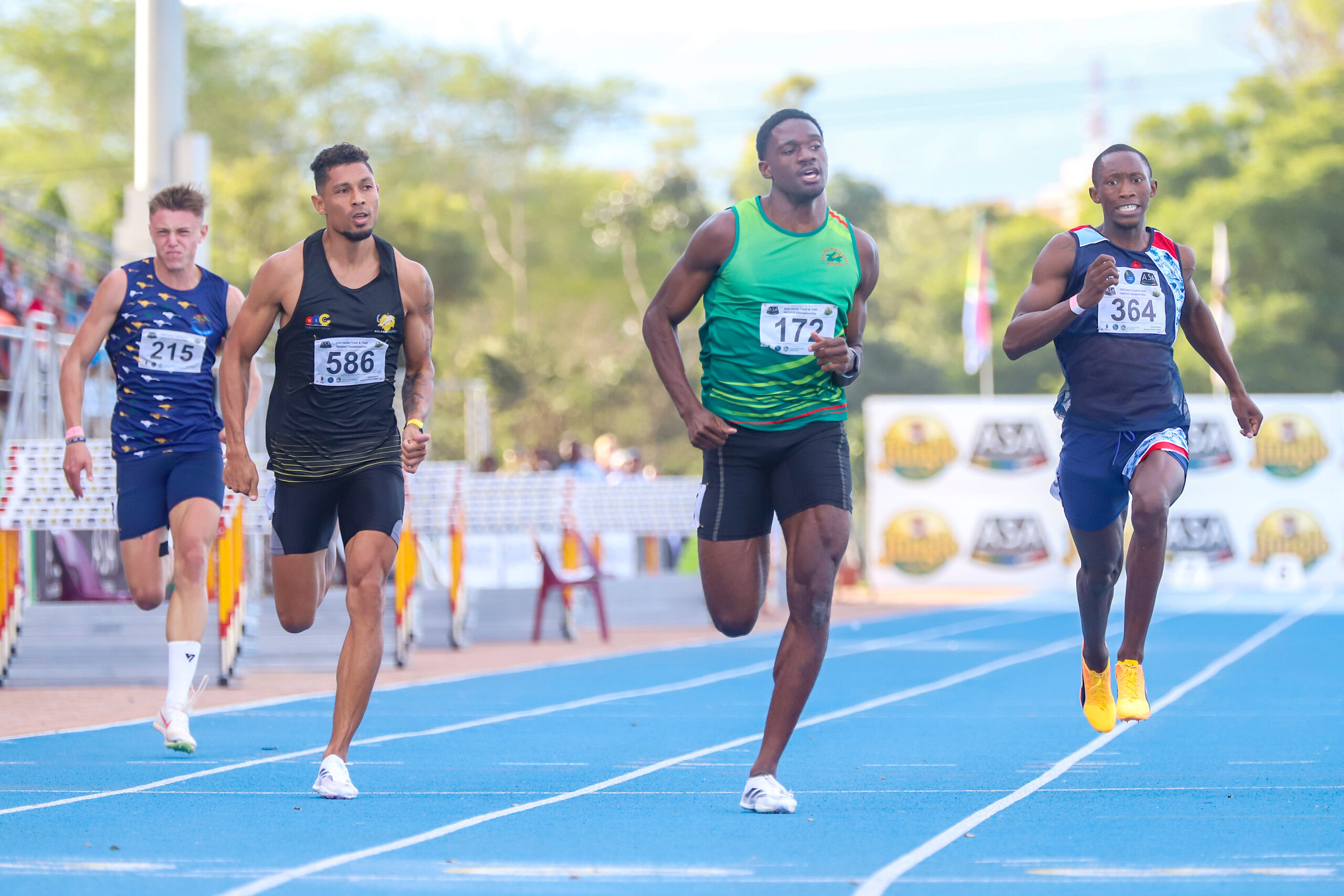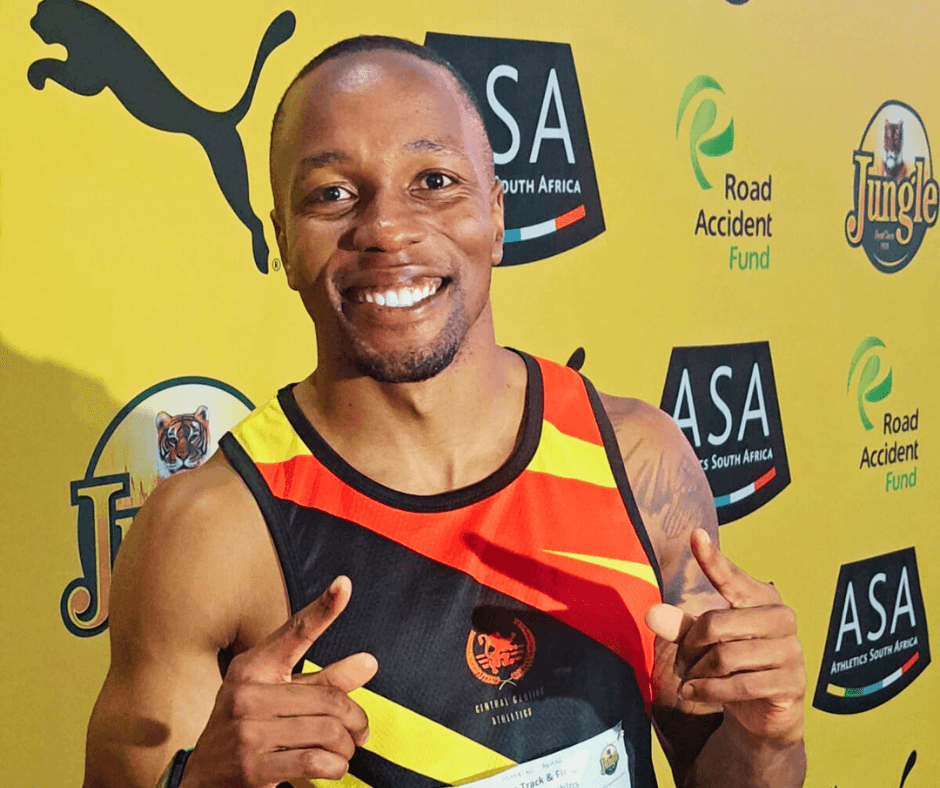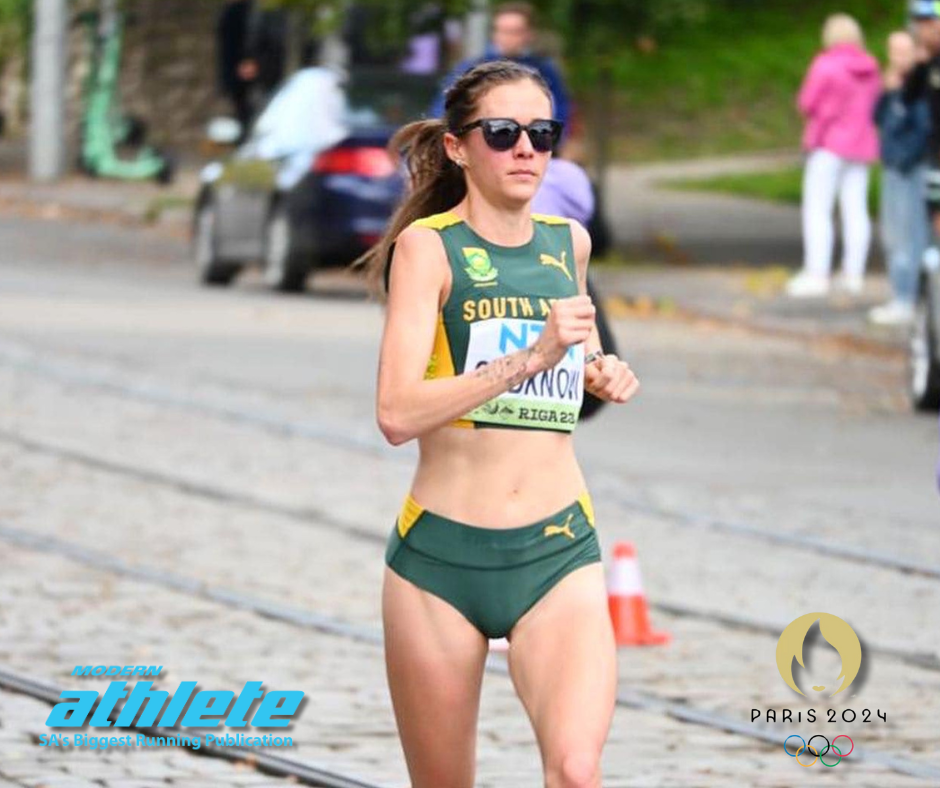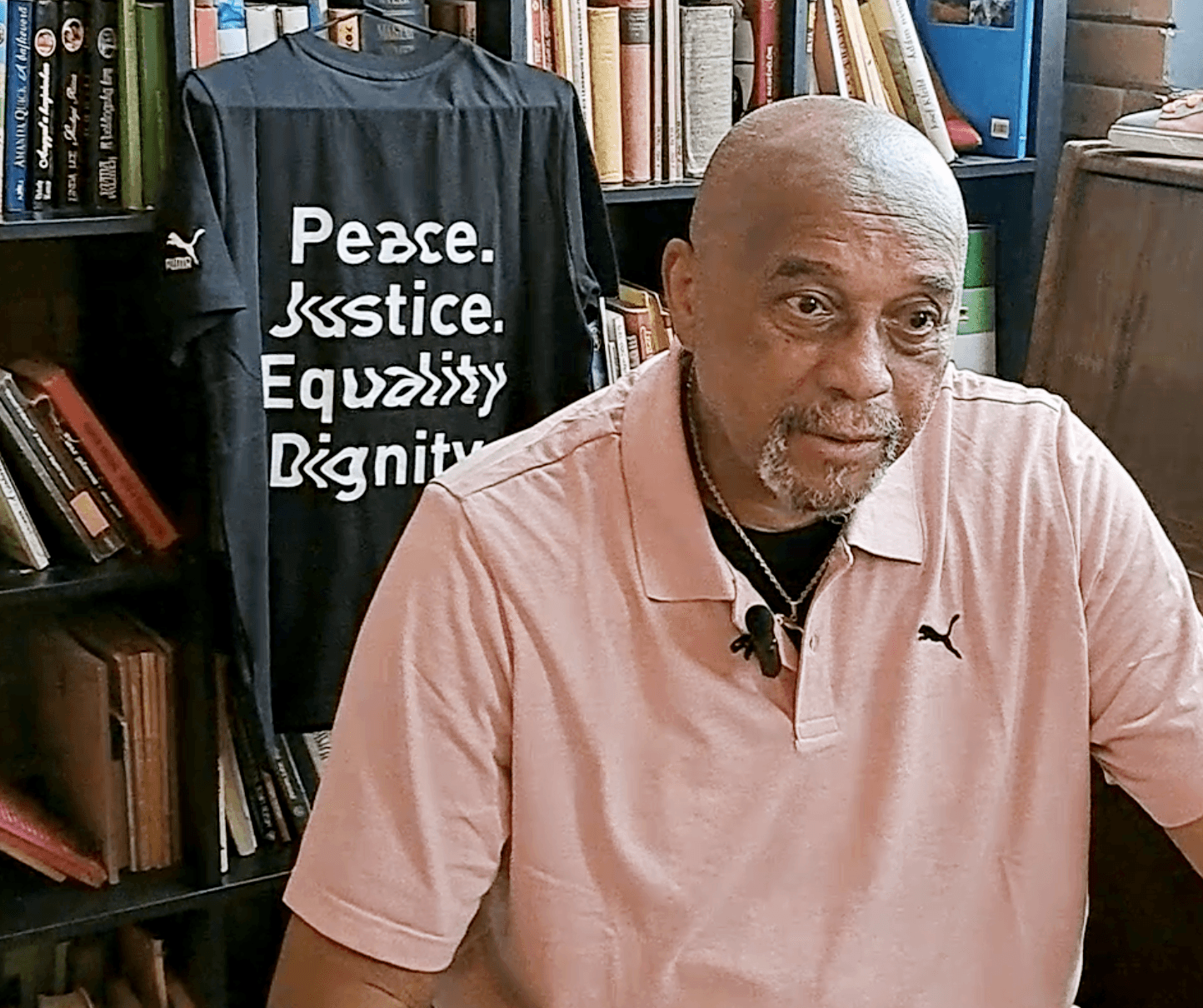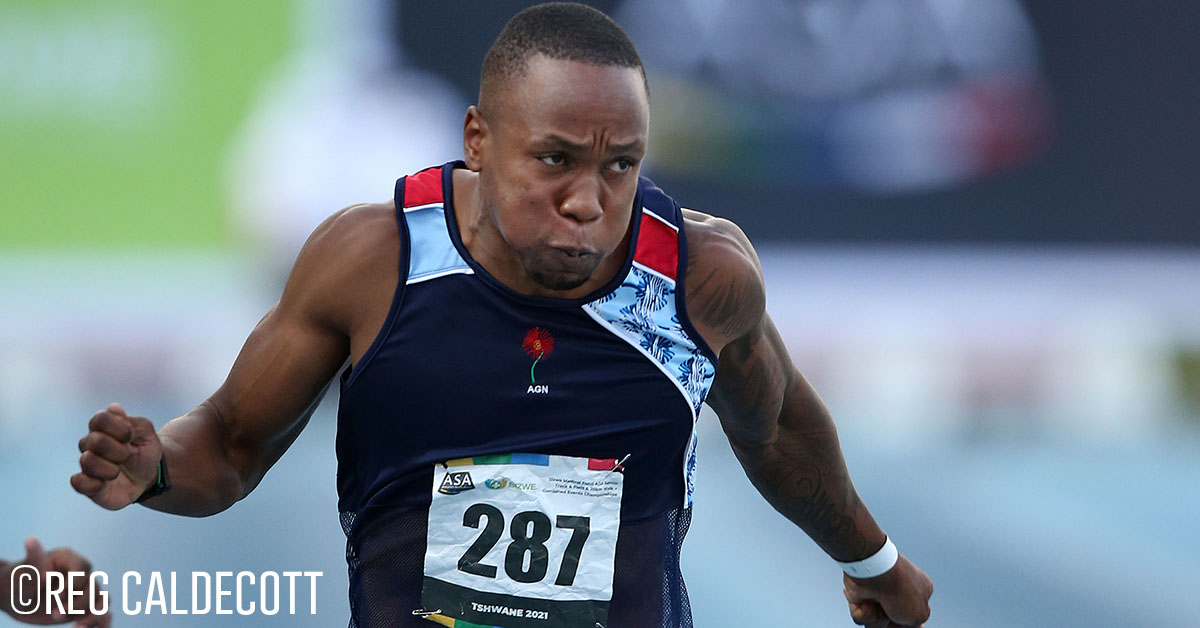Benjamin Richardson produced the largest upset of the SA Athletics Championships so far by outgunning Wayde van Niekerk to win the 200m title in a steamy Pietermaritzburg on Saturday. By Karien Jonckheere, Picture Cecilia van Bers
Van Niekerk chose to focus his efforts on the 200m event in Maritzburg rather than the 400m, in which he won Olympic gold in 2016 in world record time. But Richardson produced a speedy 20.16-second performance to outshine the veteran and take the title while also securing an Olympic qualifying mark. Van Niekerk settled for silver in 20.31.
“I could have [gone faster] but I’m more happy about the moment and the fact that I did my qualifier,” said a thrilled Richardson. “I was happy in the moment with what I did because it took so much effort and I’m just happy right now.”
As for beating Van Niekerk, the 20-year-old said he remembered the exact date he raced against him for the first time back in 2021.
“It shows that through time, things can change and three years later, I’m now first and so now I’m happy and I’m grateful for everything that’s happened – the trials and tribulations.”
Meanwhile, Lythe Pillay surprised even himself on his way to the 400m title in a new personal best time of 44.31 seconds, with Zakithi Nene also achieving his second Olympic qualifying time in the event, taking silver in 44.80.
“We’re still on cloud nine, or rather on cloud 44 right now, but I’m grateful and blessed,” said an amazed Pillay afterwards.
“Being in a very competitive lineup like that, even with Wayde [van Niekerk] not being present, I knew it was going to be a tough race. I was just here to execute and do what I had to do today.
“The plan was just to go, so from the gun have a good reaction, stay controlled, not spilling energy unnecessarily, sticking to my normal tactics, sticking to my normal strength… and everything clicked today,” added the 21-year-old who will be hoping everything also clicks tomorrow when he is writing an accounting exam.
It was a busy day for Shirley Nekhubui who doubled up in the 200 and 400m, successfully securing both titles on the same day.
Nekhubui claimed the 200m victory in 23.28 and followed that up by edging out defending champion Miranda Coetzee for the 400m title as well, winning in a time of 51.77 seconds.
Nekhubui said afterwards she is till hoping to qualify for the Paris Olympic Games in the 400m and will be aiming to do that in Europe in the coming weeks.
Glenrose Xaba completed a double of her own. She overcame the steamy KZN conditions to add the 10,000m title to the 5000m gold she won on Thursday.
In a race that saw several athletes either collapsing or dropping out, Xaba held on to win in a time of 32:56.29 for her seventh national 10,000m title.
Adriaan Wildschutt took the men’s 5000m title in a time of 13:30.38 to make it a double for the family with his brother Nadeel having claimed the 10,000m title on Thursday.
The SA Athletics Championships conclude tomorrow.

